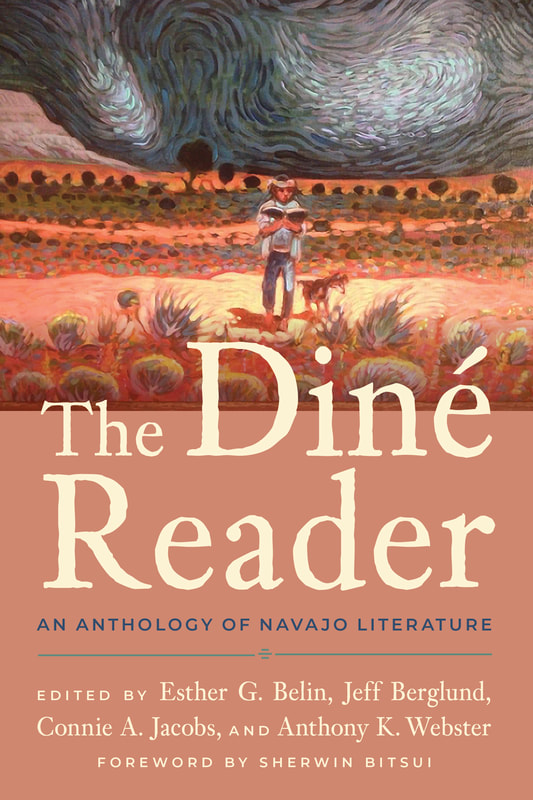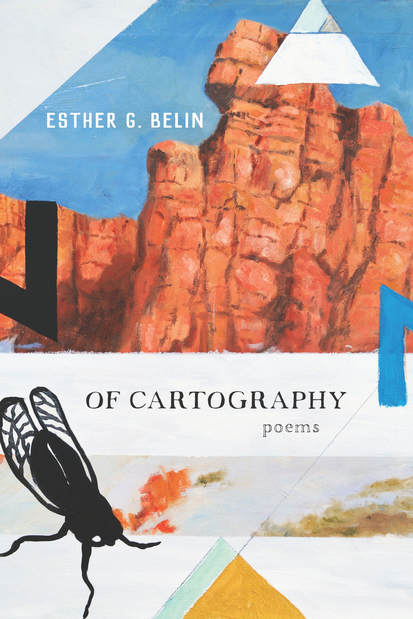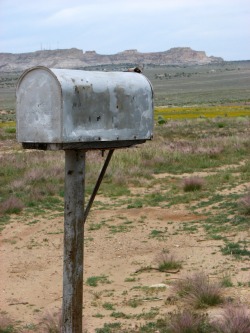Books and Poetry
“I see myself as an interpreter of what happened in my parents’ generation, and I want to let people know about their experiences, especially with boarding schools and relocation. I see my books as an anthropological text—telling what it’s like for Native people.”
Esther Belin
 The Diné Reader
The Diné Reader
This volume combines an array of literature with illuminating interviews, biographies, and photographs of the featured Diné writers and artists. A valuable resource to educators, literature enthusiasts, and beyond. This anthology is a much-needed showcase of Diné writers and their compelling work.
Of.Cartography Poems
"Belin has pushed the envelope of convention with the format of some of the poems in this book. Using typographic and linguistic illustration, she gives new impact to her writing. Readers might have to adjust their expectations when interpreting her intentions or emotions while viewing these poems." ~ Leslie Doran
As a reader, I felt initially uncertain how to read the book, almost queasy. That’s deliberate: Belin wants to show Navajo readers that they don’t have to conform to English standards while giving outsiders a sense of the complicated poetics of tribal storytelling." ~ Heather Hansman
Article in High Country News: A Map of Language
 From the Belly of My Beauty
From the Belly of My Beauty
American Book Award Winner (2000)
"Work like Belin's is essential reading for those who would see a transformation of contemporary Native American cultural identity that resists inaccurate social stereotypes. She enmeshes her experience as a contemporary urban woman, mother, and Navajo into a collective identity that celebrates each of its parts while still reading beyond them to produce a singe coherent voice." ~ David Rice
"In this collection, Belin, 'blues-ing on the brown vibe' of the urban landscape of Los Angeles and Oakland, California, collects snapshots of the urban Indian community in these major relocation centers, memories of Dinétah, and instances of the routes that take her back and forth both physically and mentally. It works as a potential site for a critique of dominant spatial norms of fixity of Native people in time and space and allows for a potential spatial restructuring." ~ Mishuana R. Goeman

 The Winter Pantry
The Winter Pantry X+X+X+X-X-X-X
X+X+X+X-X-X-X Night Travel
Night Travel Hello! I would love to hear from you about my artwork and writing. Feel free to send a comment or question using this form. Thank you, Esther.
Hello! I would love to hear from you about my artwork and writing. Feel free to send a comment or question using this form. Thank you, Esther.